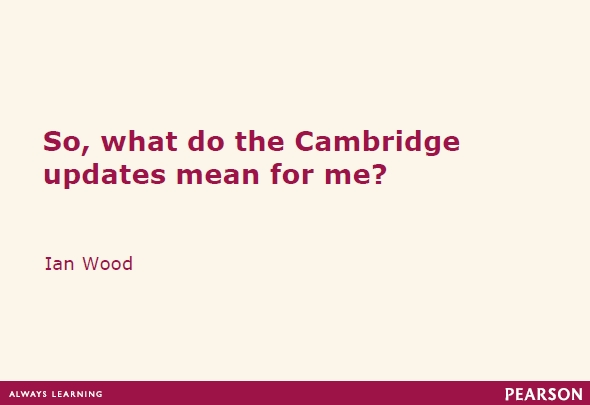 In today’s globalised world, it is increasingly important not only to be proficient in English but also to be able to prove your level of proficiency. Companies with international business often require job applicants to present a certificate that shows how fluent they are in English, while for non-natives applying to universities in English-speaking countries, demonstrating you have a high enough level of the language to study your chosen subject is a basic entry requirement. With so many options available, the first question has to be, ‘Which English exams should I choose?’ Here we look at what’s on offer. For some top tips on how to prepare, click here.
In today’s globalised world, it is increasingly important not only to be proficient in English but also to be able to prove your level of proficiency. Companies with international business often require job applicants to present a certificate that shows how fluent they are in English, while for non-natives applying to universities in English-speaking countries, demonstrating you have a high enough level of the language to study your chosen subject is a basic entry requirement. With so many options available, the first question has to be, ‘Which English exams should I choose?’ Here we look at what’s on offer. For some top tips on how to prepare, click here.
Tag Archives: exams
7 tips for English exams to help you prepare
 Once you’ve decided which English exam to take, the next step is to prepare. Whatever the exam you’ve opted for, it’s not enough just to have the right level of English. You also need to know what the exam involves, what techniques will help you to pass it and what to expect on the day. Here are 7 tips for English exams.
Once you’ve decided which English exam to take, the next step is to prepare. Whatever the exam you’ve opted for, it’s not enough just to have the right level of English. You also need to know what the exam involves, what techniques will help you to pass it and what to expect on the day. Here are 7 tips for English exams.
10 great websites for learning English
 With such an abundance of authentic English online these days, from videos to articles, podcasts to blogs, there’s no excuse not to use the internet to help you improve. However, you might also want something targeted especially at the learner. Here, alphabetically, are 10 great websites for learning English that we think you’ll enjoy. Continue reading
With such an abundance of authentic English online these days, from videos to articles, podcasts to blogs, there’s no excuse not to use the internet to help you improve. However, you might also want something targeted especially at the learner. Here, alphabetically, are 10 great websites for learning English that we think you’ll enjoy. Continue reading
5 different English classes – but which type of class is for you?

These days there are all kinds of classes available for the budding English language student. Here are 5 of the most common English classes. Which type of class do you go with?
1. Grammar-based
Traditional language lessons were heavily reliant on grammar-based instruction, with lots of explanations of rules, lots drilling of structures and lots of translation exercises. But grammar alone doesn’t get you very far. Vocabulary is more useful. If you’re dying of thirst in a boiling hot English-speaking country (although, let’s face it, that’s unlikely to be the case in the UK), it won’t do you any good to know that in English pronouns must usually be expressed, that uncountable nouns don’t take an article or that the object follows the verb if you don’t know the words ‘want’ and ‘water’. Continue reading
Changes to the Cambridge Exams and what they really mean to students and teachers
Last week Pearson took its Learning Journeys on the road in Spain, visiting almost 250 teachers in Madrid, Bilbao and Seville. The topic was exams and so we considered ourselves extremely lucky to be able to count on Pearson’s very own Ian Wood (Product Development Director Assessment). Few people have spent quite so much time in and around the world of ELT assessment as he, so his knowledge proved invaluable as he tackled an area of particular concern to his audience – Changes to the 2015 Cambridge Exams.
Some are minor changes on familiar exercises, others are entirely brand new tasks (Cross-text multiple matching anyone?), and still others are subtle (or not so subtle) changes of focus. But all of them are going to impact the way we and our students prepare for these exams.
Thanks again to Ian for laying this all out so clearly. Changes are always a bit stressful, but being well informed is a great way to reduce some of that anxiety. You can have a look at his presentation by clicking on the image below.
And our deepest thanks to all of you who came out to see us. We certainly enjoyed meeting and talking to you.
For those of you who would like to view Ian’s other talk on teens, the teen brain and getting them ready for Cambridge exams, you can find it here.


